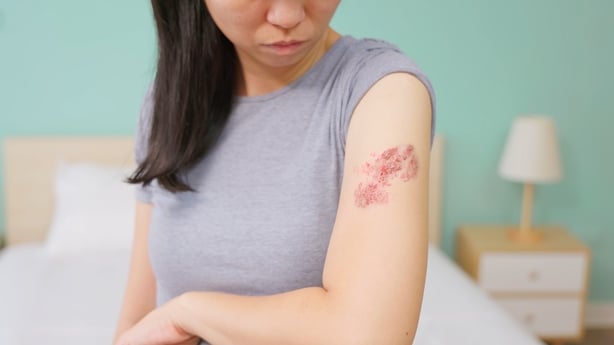Analysis: The vaccine is around 90% effective in protecting against infection and can help prevent severe cases and rare complications
The chickenpox vaccine is already offered as part of childhood immunisation programmes in several countries, including the UK, Canada, the US, Australia and New Zealand. Not only does evidence from these countries show us the chickenpox vaccine is safe, it also shows us just how effective the vaccine can be. In Ireland, the chickenpox vaccine has just been added to the HSE immunisation scheme for children and will be offered at 12 months.
In the US for example, where the vaccine was introduced as a routine childhood immunisation in 1995, cases have fallen by 97%. Indeed, the chickenpox vaccine prevents almost four million cases, 10,500 hospitalisations and 100 deaths from chickenpox there every year.
Vaccinating kids against chickenpox not only protects them against mild cases of the virus, but it also prevents more severe cases and the rare complications that can sometimes happen. The vaccine helps to protect more children from contracting chickenpox, improve immunity within the population and lower case numbers – which may also protect adults who haven't been exposed before from contracting the virus. Not only does it protect children and their health now, it also has many knock-on benefits for their health in the future.
We need your consent to load this rte-player contentWe use rte-player to manage extra content that can set cookies on your device and collect data about your activity. Please review their details and accept them to load the content.Manage Preferences
From RTÉ Radio 1's Morning Ireland, GPs to offer chickenpox vaccine to babies at 12 months old
Offering protection
Chickenpox is a highly infectious disease caused by the varicella zoster virus. The chickenpox vaccine protects against the varicella virus. When included as part of routine childhood vaccination programmes, children are given two doses when they're aged 12 months and 18 months.
While chickenpox is mostly contracted by young children, the virus can infect anyone of any age. Most cases in children are mild, causing extremely itchy fluid-filled blisters, along with a fever and generally feeling unwell. The infection typically lasts four to seven days. But some children will develop complications that require hospitalisation – such as inflammation in the lungs or the brain. While these complications can occur in any child, the risk of severe infection is higher in children who are immunocompromised or have underlying medical conditions.
Along with the risk of complications, being infected with chickenpox can increase a person's risk of developing shingles later in life. Approximately one in five people who have had chickenpox will develop shingles later in life. This is due to the fact that following infection, the virus travels to the sensory nerve ganglia, where it remains quiet and doesn't cause any infection for decades. But it can reactivate as shingles later in life – normally when a person is older and their immune system is weakened. This results in a rash that can cause significant pain. In around 10-18% of cases, this rash can remain for the rest of their life.

Why vaccination is better
The chickenpox vaccine is a live vaccine. This means it contains a small amount of weakened varicella virus, which is administered by injection into the upper arm. This switches on your immune system to produce antibodies to the virus, which prevents the virus from being able to establish an infection when you're exposed to the real thing.
The vaccine is around 90% effective in protecting against infection. It's most protective when children are given two doses of the vaccine. Some may wonder whether immunity from the vaccine is better than immunity from the infection itself. It's important to point out that in both instances, the immune system is activated by the virus and will generate specific antibodies to protect against it in the future. This means the next time a person is exposed to the chickenpox virus, their antibodies will block it, preventing an infection.
While the vaccine contains only a small amount of weakened virus (which is not capable of causing infection), your immune system still sees it in the same way as it would if you caught the virus from someone else. You still generate an immune response, and you still get protection.
The significant advantage of generating immunity using the vaccine is that you don't have to get sick with chickenpox, which could have serious side effects. And, the virus doesn't stay in your body for decades with the risk of being activated as shingles later in life.
Apart from the health benefits of vaccinating children, it may also have other benefits – such as preventing time out of school, which will be good for the child's education. We have a safe vaccine that can prevent a childhood illness which, in some, can cause severe complications. It makes sense that we should be using it.
Christine Loscher is Professor of Immunology at Dublin City University. This article was originally published by The Conversation.
The views expressed here are those of the author and do not represent or reflect the views of RTÉ







